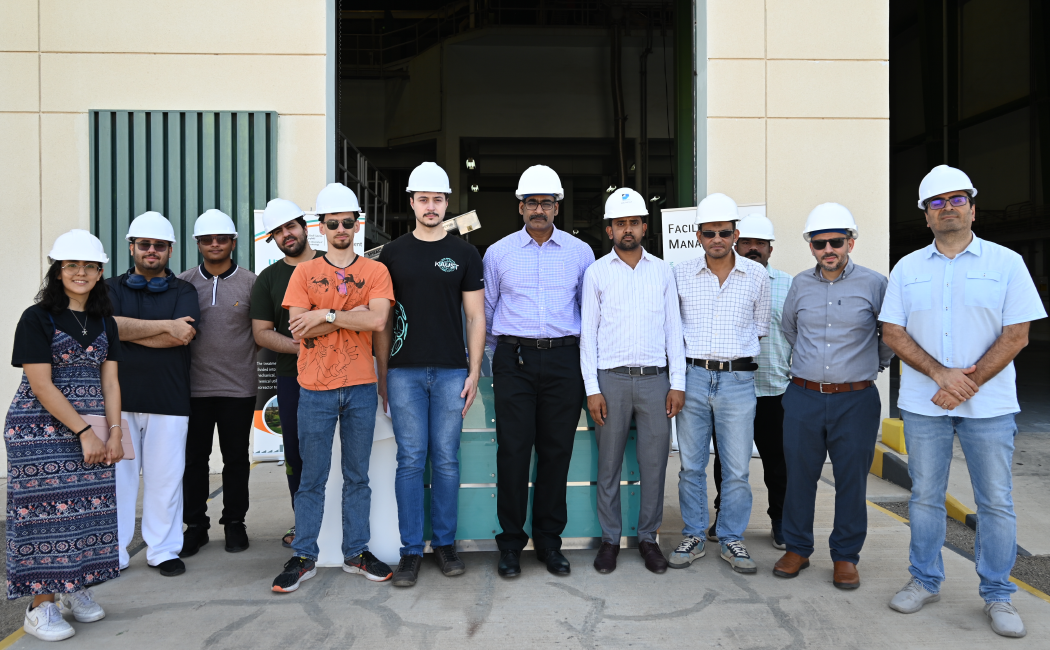


25 April, 2024
On April 15, 2024, Ph.D. students at KAUST University embarked on an enlightening excursion to the Utilities Wastewater Treatment Plant, overseen by Facilities Management, Utilities Services. Immersed in the actual production processes, they seamlessly connected these experiences with their ongoing semester studies. Guided by Professor Pascal Saikaly and accompanied by Ahmed Alhaidari and Murali Dharan, the students delved into the intricate stages of wastewater treatment, deepening their understanding of the subject matter.
This visit offered students enrolled in the "Processes in Environmental Biotechnology" course a remarkable opportunity to gain firsthand familiarity with KAUST's remarkable Wastewater Treatment Plant. Renowned for its utilization of membrane bioreactor technology, the plant can treat an impressive 11,500 m³ of domestic wastewater daily. The result is a high-quality treated sewage effluent meeting international standards, utilized for irrigation around KAUST, thus fostering sustainable water practices.

With a daily average production of 4100m3, the plant's operations are meticulously monitored and controlled through a combination of Automatic/Manual PLC (Programmable Logic Controller) systems, accessible via the HMI/SCADA (Human Machine Interface/Supervisory Control and Data Acquisition) set up in the Control Room. This cutting-edge control system ensures seamless operation, optimizing the efficiency of treatment processes.

Throughout the visit, Murali Dharan, Water Treatment Maintenance Lead at Facilities Management and an expert in wastewater treatment, served as a knowledgeable guide, offering detailed insights into each treatment stage. The students observed operations firsthand, gaining valuable insights into membrane bioreactor technology and large-scale water treatment intricacies.

This immersive experience sparked lively discussions among the students, who actively engaged in thought-provoking conversations and explored potential research avenues. The visit provided a valuable platform for idea exchange and innovative approaches to environmental challenges.
Empowered with a deeper understanding of wastewater treatment processes, the Ph.D. students are now more than ever ready to advance their academic pursuits and contribute meaningfully to environmental biotechnology. Their newfound knowledge positions them to drive sustainable solutions and address pressing environmental concerns.

The visit to the Wastewater Treatment Plant exemplifies KAUST's dedication to fostering innovation and nurturing the next generation of environmental biotechnology leaders.